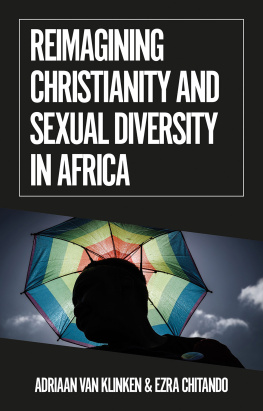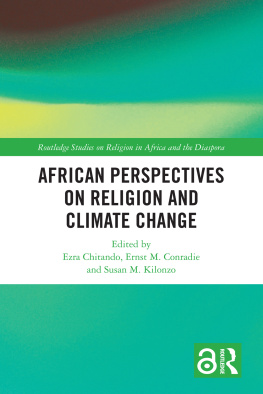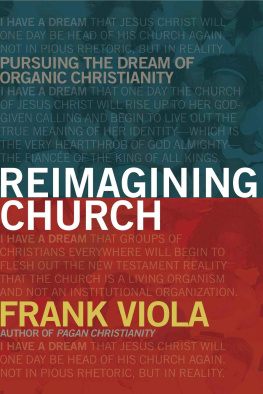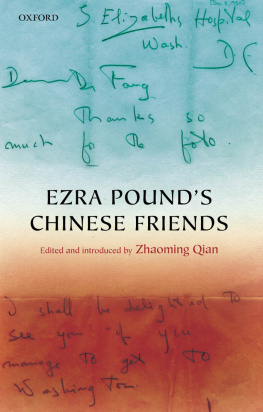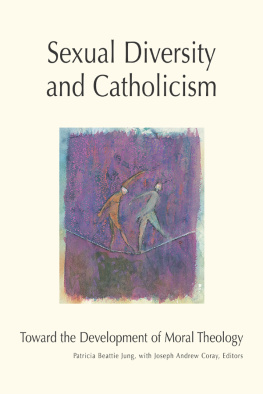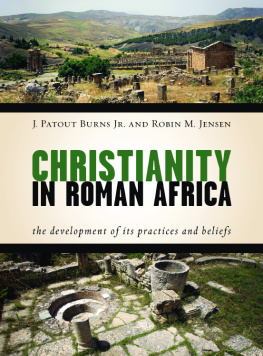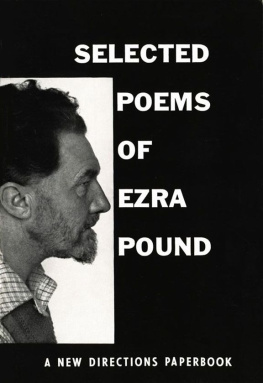Ezra Chitando - Reimagining Christianity and Sexual Diversity in Africa
Here you can read online Ezra Chitando - Reimagining Christianity and Sexual Diversity in Africa full text of the book (entire story) in english for free. Download pdf and epub, get meaning, cover and reviews about this ebook. year: 2021, publisher: Hurst, genre: Religion. Description of the work, (preface) as well as reviews are available. Best literature library LitArk.com created for fans of good reading and offers a wide selection of genres:
Romance novel
Science fiction
Adventure
Detective
Science
History
Home and family
Prose
Art
Politics
Computer
Non-fiction
Religion
Business
Children
Humor
Choose a favorite category and find really read worthwhile books. Enjoy immersion in the world of imagination, feel the emotions of the characters or learn something new for yourself, make an fascinating discovery.
- Book:Reimagining Christianity and Sexual Diversity in Africa
- Author:
- Publisher:Hurst
- Genre:
- Year:2021
- Rating:3 / 5
- Favourites:Add to favourites
- Your mark:
- 60
- 1
- 2
- 3
- 4
- 5
Reimagining Christianity and Sexual Diversity in Africa: summary, description and annotation
We offer to read an annotation, description, summary or preface (depends on what the author of the book "Reimagining Christianity and Sexual Diversity in Africa" wrote himself). If you haven't found the necessary information about the book — write in the comments, we will try to find it.
Reimagining Christianity and Sexual Diversity in Africa — read online for free the complete book (whole text) full work
Below is the text of the book, divided by pages. System saving the place of the last page read, allows you to conveniently read the book "Reimagining Christianity and Sexual Diversity in Africa" online for free, without having to search again every time where you left off. Put a bookmark, and you can go to the page where you finished reading at any time.
Font size:
Interval:
Bookmark:


African Arguments is a series of short books about contemporary Africa and the critical issues and debates surrounding the continent. The books are scholarly and engaged, substantive and topical. They focus on questions of justice, rights and citizenship; politics, protests and revolutions; the environment, land, oil and other resources; health and disease; economy: growth, aid, taxation, debt and capital flight; and both Africas international relations and country case studies.
Managing Editor: Stephanie Kitchen
Series editors
Adam Branch
Alex de Waal
Alcinda Honwana
Ebenezer Obadare
Carlos Oya
Nicholas Westcott
ADRIAAN VAN KLINKEN EZRA CHITANDO

Published in collaboration with the International African Institute.
First published in the United Kingdom in 2021 by
C. Hurst & Co. (Publishers) Ltd.,
83 Torbay Road, London, NW6 7DT
Copyright Adriaan van Klinken and Ezra Chitando, 2021
All rights reserved.
Printed in the United Kingdom
The right of Adriaan van Klinken and Ezra Chitando to be identified as the authors of this publication is asserted by them in accordance with the Copyright, Designs and Patents Act, 1988.
A Cataloguing-in-Publication data record for this book is available from the British Library.
ISBN: 9781787385719
This book is printed using paper from registered sustainable and managed sources.
www.hurstpublishers.com
PART ONE
REIMAGINING AFRICAN CHRISTIAN THOUGHT
PART TWO
TRANSFORMING AFRICAN CHRISTIAN PRACTICE
PART THREE
RESHAPING AFRICAN CHRISTIAN CULTURE
It has been an absolute pleasure for us to work on this project together. We have known each other for over 12 years, since we met at a conference about religion, HIV and AIDS in Durban, South Africa, in 2008. Following that conference, Ezra served as a co-supervisor of Adriaans PhD research at Utrecht University in the Netherlands. After that, we have frequently collaborated on publishing projects. In 2016, we jointly edited two book volumes on religion and the politics of homosexuality in Africa, to which this book can be seen as a sequel.
We recognise in each other a commitment to engaged academic scholarship that contributes to social transformation. We engage religion critically and empathetically and are keen not only to think about, but also to think with, religion; to identify religious resources for constructive thought and progressive social change. For reasons of transparency, we admit that each of us also has a personal commitment to Christian faith. This should not be taken to mean that we engage Christianity uncritically on the contrary. Yet it does mean that we recognise from our own experience and understanding the value that religious faith can have, and the contribution it can make to the development of a humanist vision for society. We also have a personal and political commitment to the cause this book centres around. Through his long-term activism and scholarship in the area of HIV and AIDS, Ezrawho is writing here in his personal capacityhas developed an in-depth understanding of the risks that the marginalisation of sexual minorities in African societies presents to public health and human rights agendas. He has built collaborative relationships with many lgbti activists and communities in his home country of Zimbabwe and across the continent; he has also actively engaged African religious leaders on issues of sexual diversity from faith perspectives. Adriaan has conducted research on religion, homosexuality and lgbti activism for the past ten years, with a focus on Zambia and more recently Kenya. He has built friendships and collaborations with lgbti activists and organisations in these and other countries. Both of us consider ourselves allies of African lgbti communities in their quest for justice, freedom and recognition.
We have realised through our work that an accessible book offering a constructive account on sexual diversity and Christianity in Africa did not exist. Hence the idea emerged for the book you are currently reading, aiming at a range of audiences, from students and academics, to activists and practitioners, to clergy and religious leaders, both based on the African continent and abroad. Whatever your reason for starting to read this book, we hope that it will stimulate and enrich your thinking.
We thank Raga Makawi for her enthusiastic response when the idea for this book came up. We are grateful to Stephanie Kitchen of the International African Institute for her active support, and the reviewers for their helpful comments on the draft manuscript. Thanks also to the editors and publisher of the African Arguments series for making this book project possible.
Adriaan van Klinken and Ezra Chitando
Leeds and Harare, 1 October 2020
SEXUALITY, CHRISTIANITY AND AFRICAN IMAGINATIONS
There are two dominant imaginations of sexuality and Christianity in Africa. In one, especially popular on the continent, Africa is imagined as a heterosexual continent, where homosexuality is alien and foreign to African cultures: a Western invention imposed on African societies as yet another example of Western imperial hegemony. When presented by African Christians, this imagination often engages the idea of Africa as a Christian continent that must resist the liberal pressure of secularised Western countries. In the other imagination, especially widespread in the West, Africa is envisaged as a homophobic continent in which gay and lesbian people are marginalised and discriminated against, becoming victims of a deeply ingrained homophobia that illustrates the backward nature of African cultures and societies. Christianity, in this imagination, is usually seen as one of the conservative ideologies fuelling this African homophobia. This book interrogates these two narratives by demonstrating the ways in which sexuality, Christianity, and the idea of Africa itself are creatively reimagined within African societies today. It features a selection of African thinkers, organisations, artists and activists who critically engage the intersections of sexuality and Christianity in Africa and stimulate alternative, transformative possibilities of considering these three themes together.
This book is based on three central premises: one, sexuality has become a key site of struggle where African identity is imagined, negotiated, contested and transformed. Secondly, Christianity is a critical discursive field in which this struggle over sexuality in Africa takes place. Following from that is a third premise, that Christianityas a tradition of faith and thought, a practice of lived religion, a site of institutional power, and a major factor in public culturecan also (and in fact, already does) contribute to the creative re-imagination of sexuality in contemporary Africa. The latter proposition might be the most contested one. After all, given how intricately connected Christian beliefs, leaders and institutions are in the politics of homophobia in African societies, seemingly the most obvious thing to do might be to give up on Christianity altogether. However, as the Cameroonian philosopher Achille Mbembe reminds us, Struggle as a
Font size:
Interval:
Bookmark:
Similar books «Reimagining Christianity and Sexual Diversity in Africa»
Look at similar books to Reimagining Christianity and Sexual Diversity in Africa. We have selected literature similar in name and meaning in the hope of providing readers with more options to find new, interesting, not yet read works.
Discussion, reviews of the book Reimagining Christianity and Sexual Diversity in Africa and just readers' own opinions. Leave your comments, write what you think about the work, its meaning or the main characters. Specify what exactly you liked and what you didn't like, and why you think so.

